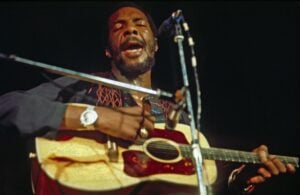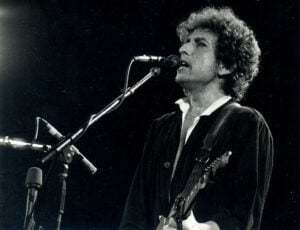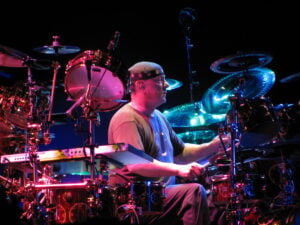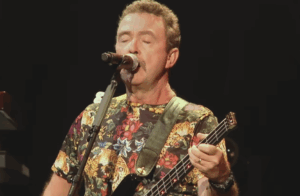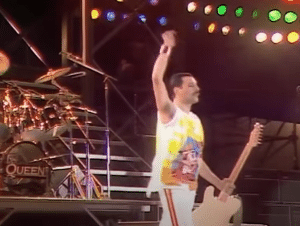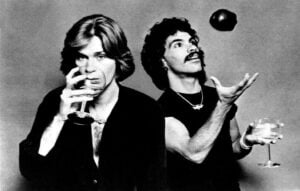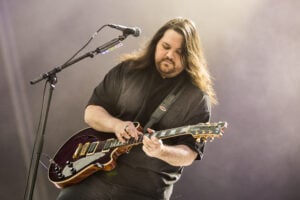10 1970s American Classic Movies You Didn’t Know Existed
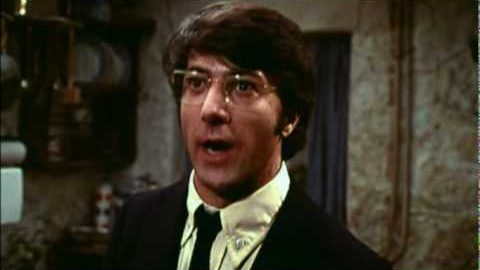
via ryy79 / Youtube
Many people view the 1970s as among the best decades in movie history. A new wave of directors grabbed the front stage, reshaping narrative and pushing creative limits as Hollywood’s Golden Age faded. Easy Rider (1969) marked the change and opened doors for directors like Steven Spielberg, Francis Ford Coppola, and Martin Scorsese to establish themselves.
Whether in gritty criminal dramas, boundary-pushing horror, or counterculture classics, this was a time of bold, risk-taking films. Blaxploitation movies and innovative art-house narratives also emerged during this time. This selection of ten must-watch films from the 1970s will transport you throughout one of Hollywood’s most fascinating decades if you enjoy movies that have a long influence.
1. Rio Lobo (1970)
Renowned filmmaker Howard Hawks, whose works include Scarface (1932), His Girl Friday (1940), and The Big Sleep (1946), made Rio Lobo his last motion picture. This Western follows John Wayne’s character, Colonel Cord McNally, as he tracks down the Confederate traitors who killed his friend and seeks retribution for him.
“Most directors have horrible last movies…I don’t want to make Rio Lobo,” Quentin Tarantino famously said, citing Rio Lobo as an example of why filmmakers should retire before losing their touch. Despite his scathing criticism, Rio Lobo is a good and enjoyable Western and more than just the final film of an elderly director.
The thrilling action, especially the riveting train scene, demonstrates Hawks’ skill. The movie is an underappreciated masterpiece that combines humor and friendship with traditional Western clichés. Rio Lobo is nevertheless a skillfully made and entertaining journey, even though it might mark the end of the Old Hollywood era.
2. Two-Lane Blacktop (1971)
Played by Dennis Wilson and James Taylor, two drifters pick up a hitchhiker (Laurie Bird) and race a flamboyant GTO driver (Warren Oates) throughout the nation. Two-Lane Blacktop is not at all like a conventional racing movie, though.
Capturing the hippie era’s restless, existential attitude, this 1971 cult classic is almost mesmerizing with its quiet, introspective people and long, meditative pauses. Like Easy Rider (1969), it captures the free-spirited, itinerant core of the hippie movement.
Director Monte Hellman imbues the voyage with a melancholy, poetic sense. While Harry Dean Stanton offers a brief but compelling cameo, Warren Oates gives his eccentric GTO driver some comedy. Beyond a road journey, the movie looks at issues of loneliness, yearning, and the search for meaning. Two-Lane Blacktop is still among the most original road movies in film history, with its surreal setting and understated speech.
3. Straw Dogs (1971)
David (Dustin Hoffman) and Amy Sumner (Susan George) move to a quiet English village, hoping for a peaceful life. However, tensions with the locals, particularly the builders working on their home, soon escalate into something far more sinister.
At its core, Straw Dogs is a raw, unsettling thriller that builds slow-burning tension before exploding into shocking violence. More than just a brutal grindhouse film, it digs into deep themes like class divisions, morality, and human nature’s darkest instincts. The film’s disturbing realism makes it even more terrifying than supernatural horror.
Directed by Sam Peckinpah, Straw Dogs is one of his most intense works, pushing the limits of psychological and physical brutality. Dustin Hoffman delivers one of his most gripping performances, bringing depth to his character’s transformation. Visceral, thought-provoking, and deeply unsettling, this is a film that strips away civilization’s veneer, exposing the primal instincts lurking beneath.
4. The Friends of Eddie Coyle (1973)
Eddie Coyle (Robert Mitchum) is a low-level gunrunner staring down a long prison sentence. Desperate to avoid jail, he strikes a deal to inform on the Boston underworld—a decision that puts him in danger.
At the heart of The Friends of Eddie Coyle is Robert Mitchum’s incredible performance. Known for playing tough antiheroes in Out of the Past (1947) and chilling villains like in The Night of the Hunter (1955), Mitchum takes a different approach here. As Eddie, he’s weary, vulnerable, and tragically human—a man trying to survive in a world that offers him no way out.
Based on George V. Higgins’ novel, the film is rich in sharp dialogue and gritty realism, much like Killing Them Softly (2012), another Higgins adaptation. With its tense, fast-paced storytelling and an authentic Boston atmosphere, The Friends of Eddie Coyle stands as one of the defining crime films of the 1970s.
5. The Outfit (1973)
Earl Macklin (Robert Duvall) is out for revenge after the mafia murders his brother. Determined to get even, he takes on the underworld in a tense, action-packed showdown.
At its core, The Outfit is a gripping crime thriller packed with all the classic elements—gangsters, hitmen, high-stakes heists, and explosive shootouts. Adapted from Donald E. Westlake’s novel, the film rises above standard genre fare thanks to Duvall’s commanding performance. Known for his depth and intensity, he brings real weight to Macklin’s relentless quest for justice. He’s joined by the always compelling Karen Black, whose raw energy adds to the film’s emotional punch.
Initially overlooked, The Outfit has since earned a well-deserved cult following. Fans of gritty ‘70s crime films will love its stylish, no-nonsense approach. Even Quentin Tarantino, who praised it in Cinema Speculation, acknowledges its influence on his own neo-noir storytelling.
6. Messiah of Evil (1973)
When Arletty (Marianna Hill) arrives at her missing father’s deserted beach house, she quickly realizes something is very wrong. The eerie town is crawling with the undead, and escaping may not be an option.
Messiah of Evil is a hidden treasure for horror lovers—easily one of the most visually striking and overlooked zombie films of its time. With its dreamlike atmosphere, psychedelic set design, and gothic lighting, the film creates an otherworldly sense of dread. It holds a rare 100% fresh rating on Rotten Tomatoes, with one critic hailing it as “a high point in creativity for the independent American horror film movement of the 1970s.”
The movie’s suspense shines in two unforgettable scenes. In one, Laura (Anitra Ford) stumbles into a grocery store where shoppers are devouring raw meat before turning on her. In another, Toni (Joy Bang) sits in an empty movie theater, unaware that zombies are slowly filling the seats behind her. With its counterculture themes and eerie surrealism, Messiah of Evil is a must-watch for fans of stylish, unconventional horror.
7. Race With the Devil (1975)
Two couples—Frank and Alice (Warren Oates and Loretta Swit) and Roger and Kelly (Peter Fonda and Lara Parker)—embark on a road trip through Texas, hoping for a relaxing adventure. But their journey turns into a nightmare when they witness a human sacrifice. Now, a satanic cult is hunting them, and nowhere is safe.
Like Messiah of Evil, Race With the Devil is an underrated gem that blends grindhouse horror with road-movie action. Packed with dirt bike chases, rattlesnakes, and shotgun battles, it delivers one of the decade’s most thrilling car pursuits. But beyond the action, the film taps into a deep sense of paranoia. One chilling scene shows Alice and Kelly laughing at a motel pool—until they realize every guest is silently staring at them. The camera zooms in on the eerie, emotionless faces, stretching the tension to an unbearable level.
Inspired by the post-Watergate era’s distrust and cultural divide, Race With the Devil goes beyond its 1970s roots to ask a timeless, unsettling question: Can we ever truly trust the people around us?
8. Night Moves (1975)
Private investigator Harry Moseby (Gene Hackman) is hired to track down a runaway teenager (Melanie Griffith). What starts as a routine case soon spirals into something far more sinister, leading him deep into the murky waters of the Florida Keys.
What makes Night Moves stand out is its haunting, melancholic tone. Unlike Bonnie and Clyde (1967), where director Arthur Penn captured the rebellious energy of New Hollywood, this film reflects the disillusionment of the post-Watergate era. It builds slow-burning tension, giving it an almost horror-like atmosphere that culminates in a shocking climax—similar to The Texas Chainsaw Massacre (1974) in its underlying dread.
Penn also flips the script on classic noir detectives, replacing the traditional tough guy with a flawed, emotionally burdened hero. Gene Hackman delivers a layered performance, navigating themes of betrayal, morality, and corruption. Set against a deceptively upbeat mambo soundtrack, Night Moves is a gripping psychological thriller that lingers long after the credits roll.
9. Burnt Offerings (1976)
The Rolf family rents a sprawling mansion for the summer, but their relaxing getaway quickly turns into something far more unsettling. An unseen elderly woman lives behind a locked door, and as time passes, the family members begin to change—almost as if the house itself is taking control.
Horror films often fall into two categories: some rely on gore and jump scares, while others build slow-burning psychological terror. Burnt Offerings thrives in the latter, using eerie cinematography and a creeping sense of dread to create a truly haunting experience.
One of its most chilling moments takes place in a swimming pool, reminiscent of Race With the Devil (1975). What starts as a playful father-son game turns into a horrifying struggle, as Ben (Oliver Reed) suddenly seems possessed, nearly drowning his son. A classic of psychological horror, Burnt Offerings lingers in the mind long after the credits roll.
10. Rolling Thunder (1977)
After returning from war, Major Charles Rane (William Devane) expects to rebuild his life—until his family is brutally murdered. Consumed by grief and rage, he embarks on a relentless quest for vengeance against those responsible.
Rolling Thunder stands as one of the most defining revenge films, influencing later classics like Blue Ruin (2013). Written by Taxi Driver’s Paul Schrader and directed by John Flynn (The Outfit), the film captures the tension between traditional values and a changing world.
One of its most gut-wrenching moments comes when Rane, already scarred from war, witnesses the horrifying attack on his wife and son. The film’s intense realism makes its violence feel even more brutal, leading to a powerful, action-packed climax. A young Tommy Lee Jones also delivers a memorable performance, helping cement Rolling Thunder as a gritty, no-nonsense thriller that still packs a punch.















